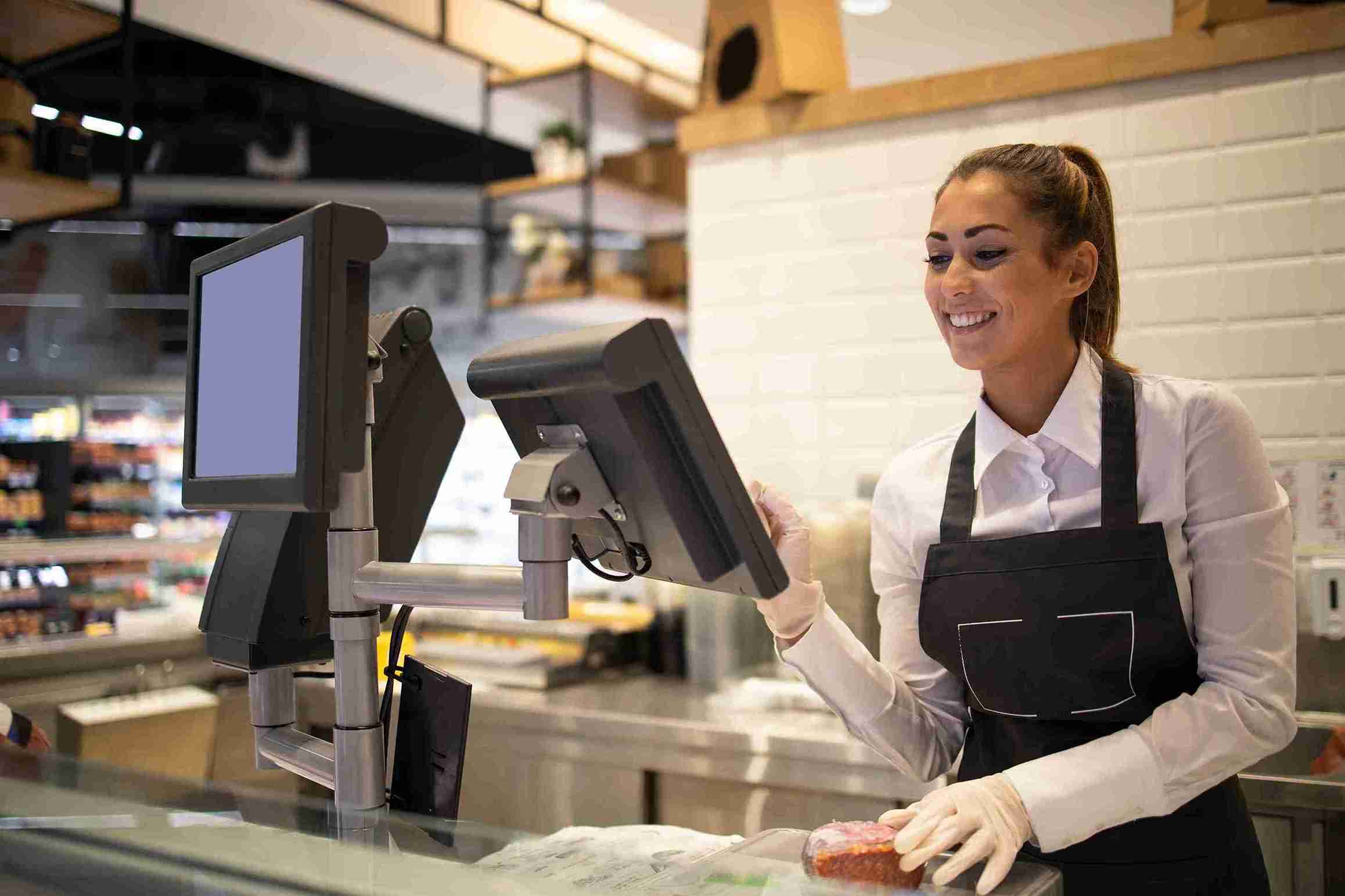 SHARE
SHARE
The Duties and Responsibilities of a Cashier You Must Know
Sovia
A cashier is an individual responsible for receiving and recording payment transactions from customers for the food or services they enjoy at an establishment.
The duties of a cashier go beyond just sitting behind the cash register; they also ensure smooth transactions. From recording orders and managing payments to keeping financial reports organized, a cashier plays a crucial role.
Let’s dive deeper into the responsibilities of a restaurant cashier and the essential skills needed to perform this job efficiently!
Duties and Responsibilities of a Cashier
A cashier’s role is not just about counting money. Behind the cashier’s desk, there are numerous responsibilities that ensure smooth operations and an enjoyable customer experience. Let’s explore the key roles of a cashier in more detail!
1. Receiving Orders
This task depends on the restaurant's system. Some restaurants still use the traditional method, where waiters handle order-taking. However, many restaurants now assign this responsibility to the cashier, especially in cases where payment is made upfront.
Additionally, the cashier must ensure that orders are recorded correctly in the cash register or POS system to prevent errors in food preparation.
2. Processing Transactions
As the front line in handling payments, the cashier must ensure every transaction runs smoothly. Whether it's cash, credit card, or digital payments like QRIS, all transactions must be processed quickly and without errors.
Besides ensuring successful payments, the cashier should also provide a receipt to the customer as proof of purchase. If there are promotions or discounts, the cashier must apply them according to the applicable terms.
3. Providing Information to Customers
A cashier is not only responsible for handling transactions but also needs to be knowledgeable about the menu, pricing, and ongoing promotions. If a customer has questions about prices or special packages, the cashier is the first person they turn to for answers.
Moreover, the cashier should be aware of any food items that contain allergens to prevent potential health risks for customers. Friendly and informative service enhances customer satisfaction and loyalty.
4. Handling Complaints
Did you know that cashiers often deal with customer complaints? For example, if there is an incorrect order or a customer believes the price charged is different from what is listed on the menu, they usually bring it up with the cashier.
In such situations, customer satisfaction depends on the cashier's ability to handle complaints calmly and effectively. If the issue cannot be resolved independently, the cashier must promptly contact the manager or relevant personnel.
5. Recording Transactions
Every transaction must be recorded accurately, including food prices, discounts, and taxes. The cashier must ensure all sales data is documented properly so that financial reports are accurate and transparent.
If the restaurant uses a cloud-based POS system, transaction recording becomes easier, as all data is automatically stored in the system.
6. Checking and Updating Product Prices
The prices listed on the menu and in the POS system must always be up to date. Imagine if a customer is charged more than the price stated on the menu—it would lead to dissatisfaction.
That’s why the cashier must ensure that the prices in the system match those in the menu, avoiding any discrepancies that could cause confusion among customers.
7. Monitoring Stock Availability
Stock management is not just the kitchen’s responsibility—cashiers also play a role in monitoring product availability. From raw ingredients to packaging materials, stock reports from the cashier help management plan inventory to avoid running out of crucial items.
For example, if a particular menu item is frequently ordered and its ingredients are running low, the cashier can notify the relevant team to restock in time.
8. Preparing Sales Reports
Daily sales reports serve as a foundation for financial reports over longer periods, such as monthly or annual reports.
With this data, restaurants can analyze sales trends, such as peak hours, best-selling menu items, and the effectiveness of ongoing promotions. These insights help businesses refine their future strategies.
9. Handling Customer Packaging
In many restaurants, cashiers also assist with packaging orders for takeaway or delivery. Proper and secure packaging ensures that food reaches customers in the best condition.
If the restaurant operates a self-service or fast-food system, the cashier must verify that the order is complete and ready to be handed over before the customer leaves the establishment.
Read more: What is A Point of Sales (POS) and Its Benefits for Culinary Business
Essential Skills for a Cashier
Source: freepik.com
In a world increasingly driven by technology and high service expectations, a cashier must master various skills to perform their duties effectively. Here are some essential skills a cashier should possess:
1. Strong Communication Skills
A cashier is the first point of contact for customers. A warm smile, friendly greetings, and active listening can make customers feel valued.
Beyond that, cashiers must be able to explain the menu, assist customers in selecting products, and handle complaints with appropriate solutions. Good communication skills are not just an advantage—they are a necessity.
2. Tech-Savviness for Work Efficiency
Gone are the days when cashiers relied solely on calculators and manual logs. Today, Point of Sale (POS) systems and modern cashier applications are integral to the retail and restaurant industries. These technologies streamline transactions, reduce input errors, and enhance operational efficiency.
As a cashier, you must be willing to learn and adapt to new technologies. If your workplace uses a digital cashier system or a specialized application, understanding its features and functionality is essential. The more proficient you are with technology, the smoother and faster your work will be.
3. Basic Math Skills
Even though digital cashier systems automate calculations, basic math skills remain crucial. There may be times when the system experiences errors or when manual calculations are required, such as providing cash change or applying special discounts.
Strong mathematical skills help ensure all transactions are accurate and prevent financial discrepancies that could affect business operations.
4. Attention to Detail in Every Transaction
A cashier is responsible for managing incoming and outgoing cash. A minor mistake in entering numbers or giving change can significantly impact financial reports.
Attention to detail is a key aspect of this job. Double-checking every transaction, ensuring cash amounts are correct, and staying alert to potential errors are part of a cashier’s professionalism.
5. Product Knowledge for Excellent Service
Have you ever been asked by a customer about the best-selling menu item, ingredients, or current promotions? A cashier must have thorough product knowledge. Understanding menu items, pricing, and other details enables faster and more professional service.
6. Problem-Solving Skills
Not all transactions go smoothly. There will be times when the system malfunctions, customers make payment mistakes, or sales reports don’t match expectations. In these situations, problem-solving skills are essential.
Read more: 5 Interesting Facts about Self Service that Makes Business More Efficient
Conclusion
Being a cashier is not just about handling transactions; it also involves building customer relationships, maintaining financial accuracy, and adapting to technology and workplace challenges. With the right skills, cashiers can ensure smooth transactions and high customer satisfaction.
Cashier errors can negatively impact your restaurant business. To prevent this, use ESB POS solutions! With fraud detection features, multi-cashier capabilities, and automated financial reporting, ESB POS helps restaurants minimize transaction errors. Contact us now and improve your restaurant’s operational efficiency!
 SHARE
SHARE





